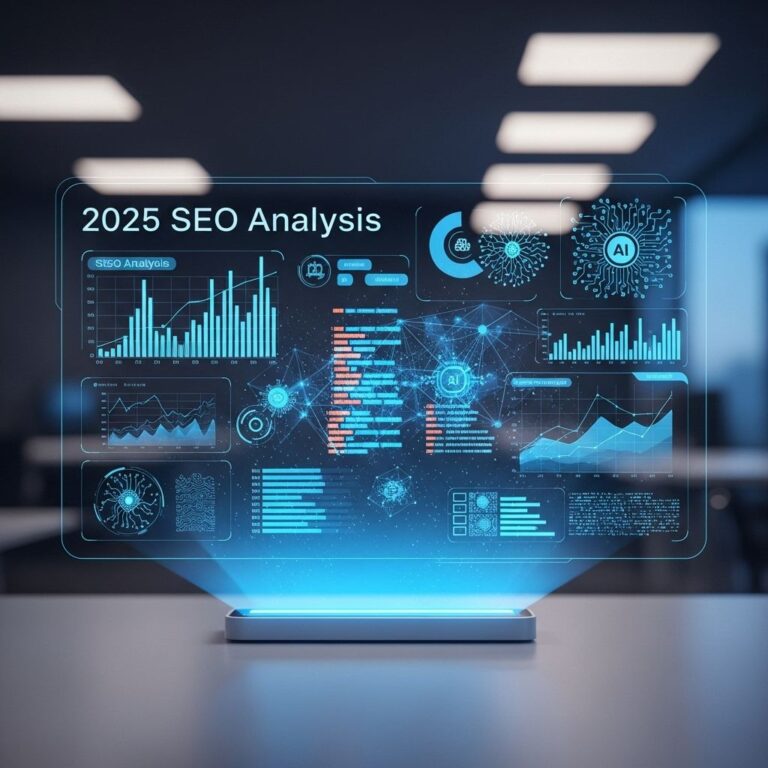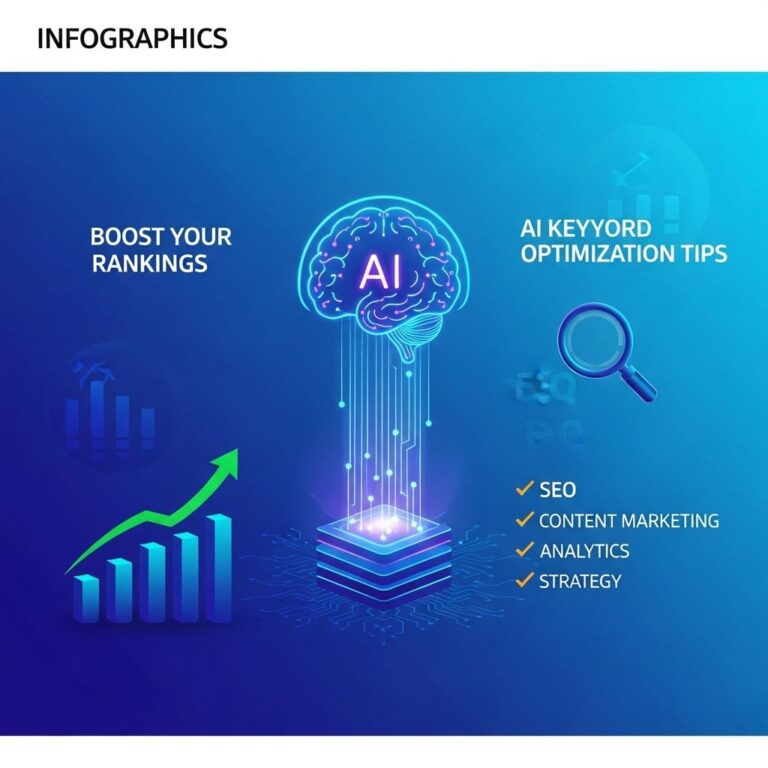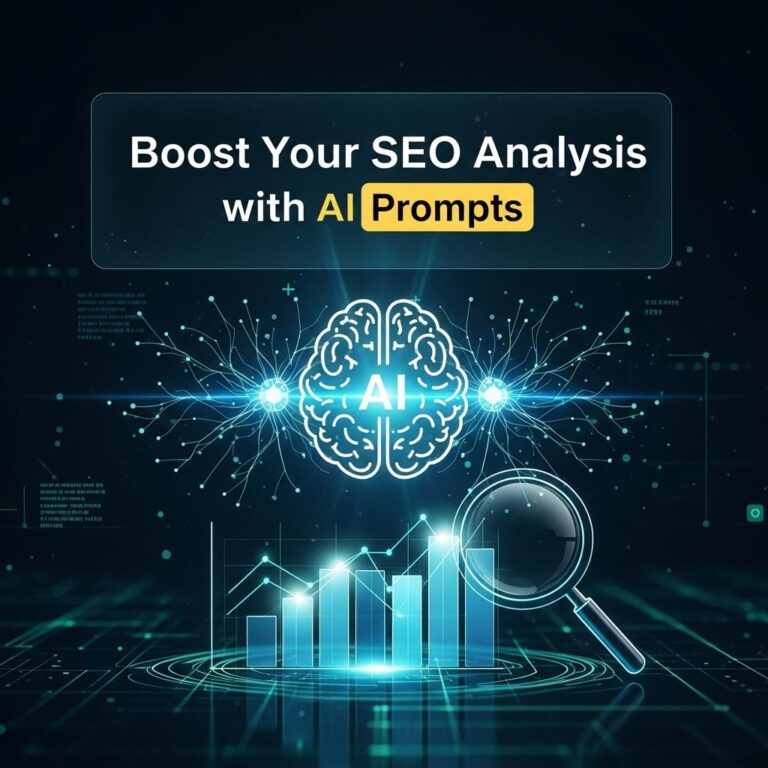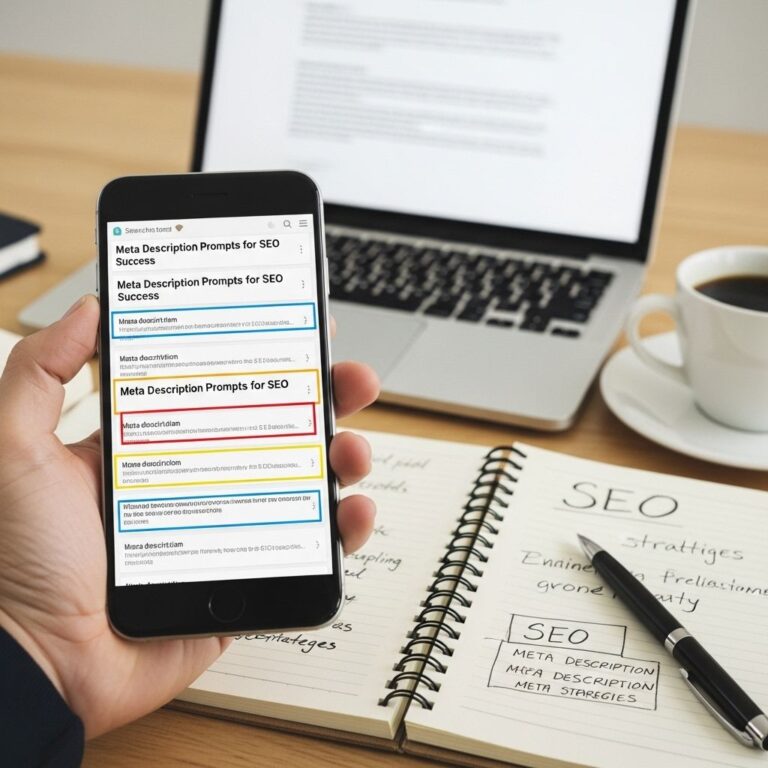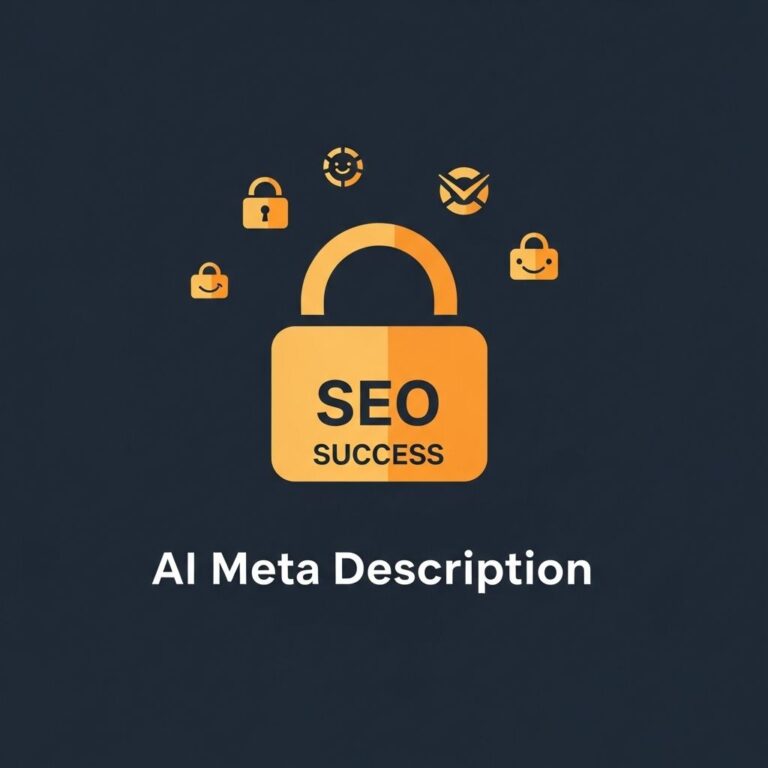In the realm of digital marketing, search engine optimization (SEO) plays a crucial role in enhancing the visibility of websites. With the rapid advancement of technology, AI has emerged as a transformative tool in crafting effective meta descriptions. These short snippets of text are often the first interaction a user has with a webpage, and their importance cannot be overstated. In this article, we will explore how AI can be utilized to create compelling meta descriptions that not only improve click-through rates but also boost overall SEO efforts.
Table of Contents
The Role of Meta Descriptions in SEO
Meta descriptions serve as concise summaries of webpage content. Although not a direct ranking factor, they significantly influence user behavior and engagement. Here are several reasons why they matter:
- First Impressions: Meta descriptions are often displayed in search engine results pages (SERPs), acting as the first point of contact for users.
- Click-Through Rates (CTR): A well-crafted meta description can entice users to click on a link rather than others.
- Keyword Relevance: Including relevant keywords in meta descriptions can enhance visibility for specific search queries.
- Social Sharing: When shared on social media, meta descriptions can influence user engagement.
Understanding AI in Content Creation
Artificial Intelligence has revolutionized various industries, including content creation. By leveraging machine learning algorithms, AI can analyze vast amounts of data, understand user intent, and generate optimized content. Here’s how AI contributes to creating effective meta descriptions:
Data Analysis and Insights
AI tools can process enormous datasets to identify patterns and trends related to user behavior. This data-driven approach allows marketers to craft meta descriptions that resonate with their target audience. Key insights include:
- User intent: Understanding what users are searching for helps tailor meta descriptions.
- Competitor analysis: AI can analyze competitors’ meta descriptions to identify what works.
- Keyword suggestions: AI tools can provide relevant keywords to include for improved relevance.
Automated Content Generation
With advancements in natural language processing (NLP), AI can generate human-like text. This capability is particularly useful for creating meta descriptions quickly and effectively. Here are some benefits:
- Efficiency: AI can produce multiple meta descriptions in a fraction of the time it would take a human.
- Consistency: Ensures a uniform tone and style across different descriptions.
- Customization: AI can tailor descriptions for different audience segments based on various parameters.
Best Practices for Crafting AI-Generated Meta Descriptions
To maximize the effectiveness of AI-generated meta descriptions, consider the following best practices:
Keep It Concise
Meta descriptions should ideally be between 150-160 characters. This length is optimal for ensuring that the description is fully displayed in SERPs without being truncated.
Incorporate Actionable Language
Using action-oriented verbs can create a sense of urgency and encourage users to click through. Examples include:
- Discover
- Unlock
- Learn
- Explore
Use Relevant Keywords
Incorporating targeted keywords not only improves visibility but also aligns with user expectations. However, avoid keyword stuffing, as it can negatively impact readability and user experience.
A/B Testing
Testing different versions of meta descriptions can help identify which variations drive higher CTR. Consider utilizing the following approach:
| Version | CTR | Notes |
|---|---|---|
| Version A | 3.5% | Action-oriented language yielded better engagement. |
| Version B | 2.8% | More technical wording did not resonate as well. |
Integrating AI Tools for Meta Description Generation
Several AI tools are available that can assist in generating optimized meta descriptions. Some popular options include:
- MarketMuse: An AI-powered content research platform that suggests meta descriptions based on content analysis.
- Copy.ai: A tool designed to help marketers create optimized content, including meta descriptions.
- Surfer SEO: Utilizes AI to provide SEO recommendations and generate meta descriptions tailored to specific keywords.
Monitoring and Adapting Strategy
Creating effective meta descriptions is not a one-time task. Continuous monitoring and adaptation are vital for long-term success. Here are steps to ensure ongoing effectiveness:
- Regularly review analytics to assess the performance of meta descriptions.
- Adjust descriptions based on changes in user behavior or search trends.
- Stay updated with SEO best practices and algorithm changes.
Conclusion
AI has transformed the landscape of digital marketing, providing innovative solutions for crafting effective meta descriptions. By utilizing data-driven insights, automated content generation, and best practices, marketers can enhance their SEO strategies and improve user engagement. As the digital landscape continues to evolve, embracing AI in content creation will be essential for staying competitive.
FAQ
What are AI-generated meta descriptions?
AI-generated meta descriptions are concise summaries created by artificial intelligence to enhance SEO and improve click-through rates by accurately reflecting webpage content.
How can smart AI improve my website’s SEO?
Smart AI can analyze data patterns, generate relevant keywords, and create compelling meta descriptions, ultimately boosting your website’s visibility and ranking in search engine results.
Why are meta descriptions important for SEO?
Meta descriptions are crucial for SEO as they provide a brief overview of your page’s content, influencing user clicks and search engine rankings.
Can AI tools create unique meta descriptions for every page?
Yes, AI tools can generate unique, tailored meta descriptions for each page based on the specific content and target keywords, enhancing overall SEO strategy.
How do I optimize meta descriptions using AI?
To optimize meta descriptions using AI, input your page’s content into an AI tool, specify your target keywords, and let the tool generate engaging descriptions that attract clicks.
What are the best practices for writing AI-generated meta descriptions?
Best practices for AI-generated meta descriptions include keeping them under 160 characters, using active voice, incorporating primary keywords, and ensuring they accurately represent the page content.


